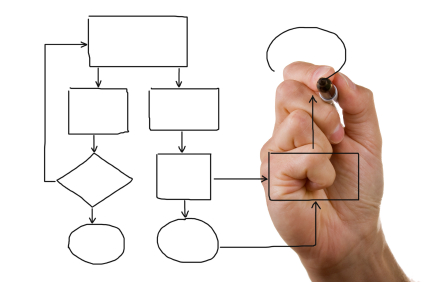
Annual Input tax apportionment – Are businesses following the correct approach?
Annual input tax apportionment is a yearly activity which businesses engaged in provision of taxable and exempt / non-business supplies should undertake post completion of a tax year. Annual input tax apportionment involves the following activities:
The adjustments arising out of the annual apportionment (i.e. wash-up and use-based adjustment) needs to be given in the first tax period of subsequent tax year. In other words, the adjustment (i.e. true-up) for annual adjustment for the tax year 2019 (which may end on December 2019 for certain taxpayers) needs to be considered in the first tax period of the year 2020, i.e. tax period January 2020 in case of monthly tax filing or tax period January to March 2020 in case of quarterly filing.
Before undertaking the annual adjustments, it is imperative for the businesses to evaluate whether the appropriate process of claiming input tax is being followed in respective tax periods. As per the VAT regulations, businesses should classify the input tax as below:
It is advisable to use different tax codes in the accounting system basis the above classification. Residual input tax is to be claimed basis the ratio of taxable supplies and exempt / non-business supplies.
Here, it is possible that the businesses may inadvertently classify input tax under the aforesaid categories, and this may impact the input tax recovery ratio leading to incorrect VAT payments. Also, it is observed that certain exempt supplies are missed to be considered by the businesses such as interest earned on inter-company loans, provision of residential accommodation to employees, margin earned on currency remittance / exchange transactions, etc.
To avoid errors, certain key processes which businesses should consider are as below:
Post completion of the tax year, businesses should undertake wash-up adjustment, i.e. computing input tax for the entire year and making adjustments on comparison with input tax claimed in respective tax periods.
With regard to use-based adjustment, it is advisable for the businesses to undertake following key steps:
Often it is observed that large groups in UAE may regularly provide loans to other group entities and earn interest on such transactions (regarded as exempt supply). While such transactions do not have any direct expenses and basis this as per the standard method entire input tax may be claimable. However, on application of special method, i.e. output based method (post completion of tax year) there is a possibility that input tax may reduce substantially considering the value of interest and value of taxable transactions. Here, a contention could be that special method should not apply as all the expenses are actually used towards taxable supplies and none of the expenses (partially or fully) can be allocated towards earning interest. Basis this, businesses may consider adopting standard method. An alternate thought could be that certain expenses relate to entire business for example – rent, professional fees, audit fees, telephone expenses, etc and it may not be true to allocate wholly towards taxable supplies. With this perspective, there is a possibility of application of special method, however same may lead of input tax cost. It is advisable to seek Clarification from the Authority on this aspect.
It is possible that few businesses may have an entire division for managing funds / investments, etc. In such cases, businesses should consider evaluating application of special method and may undertake steps as specified above.
To summarize, businesses should prudently evaluate the input tax classification and the nature of supplies (i.e. taxable, exempt, non-business, etc) including computing claimable input tax and undertaking annual adjustments. Also, it is critical to ascertain whether special method is to be applied, and same can be used post approval from the Authority.
Disclaimer: Content posted is for informational & knowledge sharing purposes only, and is not intended to be a substitute for professional advice related to tax, finance or accounting. Each article/view/comment posted by third party readers/subscribers of our website on topics of tax and accounting is their personal opinion and due professional care should be taken by you before you act after reading the contents of that article/post. No warranty whatsoever is made that any of the articles are accurate. and is not intended to provide, and should not be relied on for tax or accounting advice.
Click here to download the file